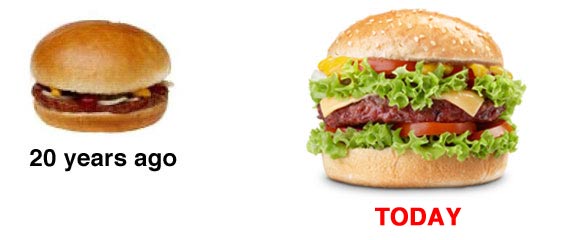
The human body and energy usage
For the human body to remain alive, it requires energy. Approximately 20% of the energy we use is for brain metabolism. The majority of the rest of the body's energy requirements are taken up for the basal metabolic requirements - the energy we need when in a resting state, for functions such as the circulation of the blood and breathing.
If our environment is cold, our metabolism increases to produce more heat to maintain a constant body temperature. When we are in a warm environment, we require less energy.
We also require mechanical energy for our skeletal muscles for posture and moving around.
Respiration, or specifically cellular respiration refers to the metabolic process by which an organism gets energy by reacting oxygen with glucose to produce carbon dioxide, water and ATP energy. How efficiently energy from respiration converts into physical (mechanical) power depends on the type of food eaten, as well as what type of physical energy is used - whether muscles are used aerobically or anaerobically.
Put simply - we need calories to stay alive, even if we are not moving, and need calories to keep our posture and to move about.
For the human body to remain alive, it requires energy. Approximately 20% of the energy we use is for brain metabolism. The majority of the rest of the body's energy requirements are taken up for the basal metabolic requirements - the energy we need when in a resting state, for functions such as the circulation of the blood and breathing.
If our environment is cold, our metabolism increases to produce more heat to maintain a constant body temperature. When we are in a warm environment, we require less energy.
We also require mechanical energy for our skeletal muscles for posture and moving around.
Respiration, or specifically cellular respiration refers to the metabolic process by which an organism gets energy by reacting oxygen with glucose to produce carbon dioxide, water and ATP energy. How efficiently energy from respiration converts into physical (mechanical) power depends on the type of food eaten, as well as what type of physical energy is used - whether muscles are used aerobically or anaerobically.
Put simply - we need calories to stay alive, even if we are not moving, and need calories to keep our posture and to move about.
How many calories do I need per day?
Math (or just get a Pedometer)
The Harris-Benedict equation, also known as the Harris-Benedict principle, is used to estimate what a person's BMR (basal metabolic rate) and daily requirements are. The person's BMR total is multiplied by another number which represents their level of physical activity. The resulting number is that person's recommended daily calorie intake in order to keep their body weight where it is.
This equation has limitations. It does not take into account varying levels of muscle mass to fat mass ratios - a very muscular person needs more calories, even when resting.
How to calculate your BMR
Male adults
66.5 + (13.75 x kg body weight) + (5.003 x height in cm) - (6.755 x age) = BMR
66 + ( 6.23 x pounds body weight) + ( 12.7 x height in inches ) - ( 6.76 x age) = BMR
Female adults
55.1 + (9.563 x kg body weight) + (1.850 x height in cm) - (4.676 x age) = BMR
655 + (4.35 x kg body weight) + (4.7 x height in inches) - (4.7 x age) = BMR
The number of calories you should eat each day depends on several factors, including your age, size, height, sex, lifestyle, and overall general health. A physically active 6ft 2in male, aged 22 years, requires considerably more calories than a 5ft 2ins sedentary woman in her 70s.
It has been discovered that even factors such as how you eat your food can influence how many calories get into your system. The longer you chew your food, the more calories the body retains, a team from Purdue University found.
Recommended daily calorie intakes vary across the world. According to the National Health Service (NHS), UK, the average male adult needs approximately 2,500 calories per day to keep his weight constant, while the average adult female needs 2,000. US authorities recommend 2,700 calories per day for men and 2,200 for women. It is interesting that in the UK, where people on average are taller than Americans, the recommended daily intake of calories is lower. Rates of overweight and obesity among both adults and children in the USA are considerably higher than in the United Kingdom.
The NHS stresses that rather than precisely counting numbers (calories), people should focus more on eating a healthy and well balanced diet, being physically active, and roughly balancing how many calories are consumed with the numbers burnt off each day. If you eat your five portions of fruit and vegetable per day you will probably live longer, Swedish researchers reported in the American Journal of Clinical Nutrition (July 2013 issue).
According to the United Nation's Food and Agriculture Organization (FAO), the average person's minimum calorie requirement per day globally is approximately 1,800 kilocalories.
No comments:
Post a Comment